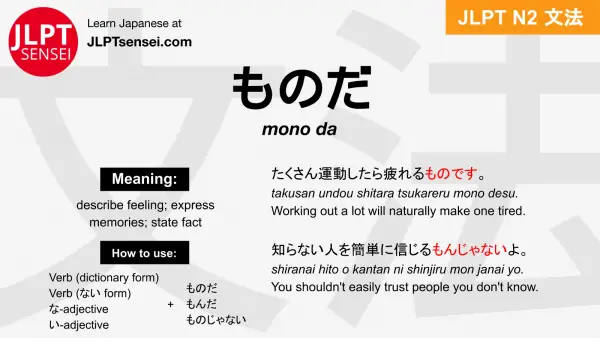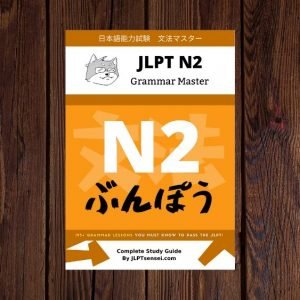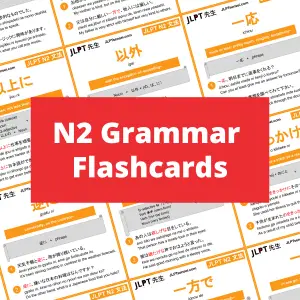Learn Japanese grammar: ものだ (mono da). Meaning: normally; in general; should~; must~.
When speaking, it is often shortened to もんだ (mon da).
Meaning 1 – normally; in general
This is used to express something considered to be common knowledge.
See examples 1~4.
Meaning 2 – should~; must~
This form can only be used with verbs.
To say “should not” or “must not”, change to ものじゃない (mono janai).
See examples 5~8.
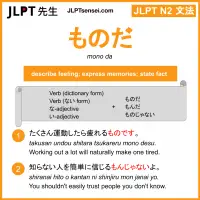
Click the image to download the flashcard.
Download all N2 grammar flashcards.
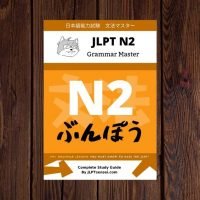
Download our complete
JLPT N2 Grammar Master E-book.
Access ALL extra downloads, ebooks, and study guides by supporting JLPT Sensei on Patreon.
ものだ - Example Sentences 例文
Each example sentence includes a Japanese hint, the romaji reading, and the English translation.
Click the below red button to toggle off and and on all of the hints, and you can click on the buttons individually to show only the ones you want to see.
Example #1
人は誰でも間違いをするものだ。
Example #2
人は見かけでは分からないものだ。
Example #3
人は誰でも失敗するものです。
Example #4
たくさん運動したら疲れるものです。
Example #5
子供は早く寝るもんだよ。
Example #6
人の悪口は言うものじゃない。
Example #7
お年寄りには優しくするものだ。
Example #8
知らない人を簡単に信じるもんじゃないよ。
View all JLPT N2 Grammar Lessons
JLPT N2 Study Guide
JLPT N2 Grammar Master [e-book]
Complete Study Guide
This e-book includes every grammar point you need to know in order to pass the JLPT N2, with detailed usage notes and numerous example sentences.
Pages: 417, lessons: 195
N2 Grammar Flashcards
Full Batch Download
Download link includes:
- Print-ready PDF of square flashcards with cut-out guides (see preview)
- Full set of high quality .png image flashcards
- JLPT N2 Grammar 文法 square size (195 images)
- JLPT N2 Grammar 文法 rectangle size (195 images)
